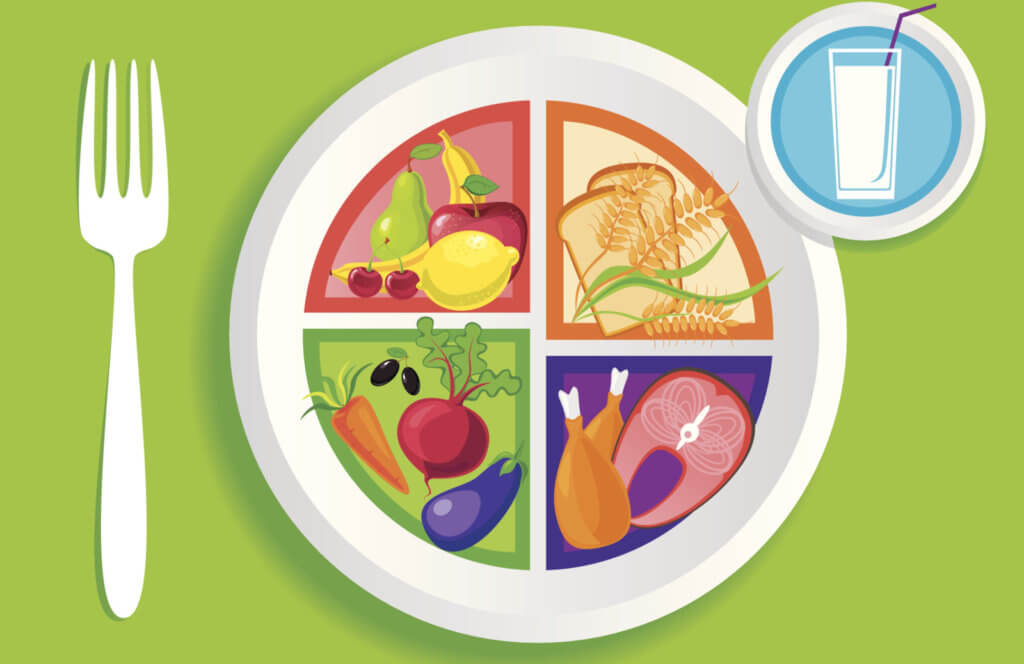
The government recently released the 2015-2020 Dietary Guidelines for Americans. The Guidelines are updated every five years to help people make healthy food and beverage choices. The recommendations in the dietary guidelines are not completely unflawed, but they are largely based on the latest scientific research on nutrition.
"Eat food. Not too much. Mostly plants." is how food and nutrition writer Michael Pollan summed up the most recent dietary guidelines. While this is an oversimplification of the guidelines, it is a pretty accurate summation of the report. The findings in the dietary guidelines state "the diet quality of the U.S. population does not meet recommendations for vegetables, fruit, dairy, or whole grains, and exceeds recommendations, leading to overconsumption, for the nutrients sodium and saturated fat and the food components refined grains, solid fats, and added sugars."
For the first time, the guidelines set an upper limit on the amount of added sugar that should be consumed on a daily basis. They recommend less than 10% of daily calorie intake come from added sugars. The guidelines also recommend that less than 10% of daily calories come from saturated fats and limiting daily sodium intake to less than 2,300 milligrams (about one teaspoon of salt).
While placing limits on the recommended intake of sodium, saturated fats, and added sugars, the guidelines also had recommendations for increased consumption of fruits, vegetables, whole grains, low-fat dairy, and seafood. Regarding seafood, the recommendations call for two to three meals of a variety of seafood per week. The Dietary guidelines also call for regular consumption of nuts or seeds, and legumes (beans and peas).
One of the more surprising findings is there are no longer warnings about cholesterol, which once again makes eggs okay to eat. According to Shulamit Shechter, Registered Dietician for WeCare Weight and Exercise Management at Community Care Physicians, "Dietary cholesterol is not much of a problem- it is the sugar content in foods that poses more of a risk." While Shechter agreed with the removal of cholesterol warnings in the guidelines, she disagreed about the recommendations on low-fat dairy. "We actually encourage patients at our office to consume full fat dairy rather than low fat because the fat helps with satiety and usually if something is made low fat the carbohydrate/sugar content can be higher."
The guidelines also encourage consumption of oils from plants such as canola, olive, corn, sunflower, safflower, and soybean. According to Shechter, not all plant based oils are the same. "The plant based oils such as corn, sunflower, safflower that the dietary guidelines recommend are very processed and studies have found some links to heart disease/cancer. Using coconut oil or an unrefined olive oil may be healthier."
The 2015 Dietary Guidelines are not without criticism either. Many nutritionists feel that politics and special interests may have greatly impacted the language used in the guidelines which is why specific foods are mentioned when discussing what to eat more of, but the language then focuses on nutrients such as sodium and saturated fats when talking about what we should limit in our diet.
Nutritionists like Marion Nestle PhD argue the guidelines should have specifically stated to eat less meat but instead the guidelines just called for less protein. “‘Protein’ lumps meat together with seafood, poultry, eggs, nuts, seeds, and soy,” she said. “But grains and dairy also have protein, so using this term makes no nutritional sense and obfuscates the message to eat less meat.” She was also critical of the Guidelines de-emphasis on calories since calorie balance remains a "major public health nutrition problem.”
David Katz, MD, MPH echoed many of the same sentiments as Dr. Nestle and took his criticism a step further. In his blog post review of the Guidelines he took umbrage with the dietary guidelines seemingly giving the ok to eat processed meats. He states, " The DG, shockingly, even carves out space to say it is ‘ok’ to eat ‘processed meats and poultry’ provided that nutrient thresholds are respected. This is absurd in the aftermath of a WHO report identifying processed meat as carcinogenic, in addition to its many other established liabilities." But despite his criticism of the final version of the dietary guidelines, Dr. Katz did praise the nutrition experts who made up the Dietary Guidelines Advisory Committee, whose report was used to update the guidelines.
While the guidelines do have their shortcomings, the overall findings of what to eat more and less of are based on solid scientific research. According to the guidelines the best foods to eat are whole fruits and vegetables, grains; at least half of which are whole grains, low-fat dairy, seafood, legumes(beans and peas), poultry, eggs, lean meats, soy products, nuts and seeds, oils from plants such as canola, olive, corn, sunflower, safflower, and soybean. In other words: "Eat food. Not too much. Mostly plants."
